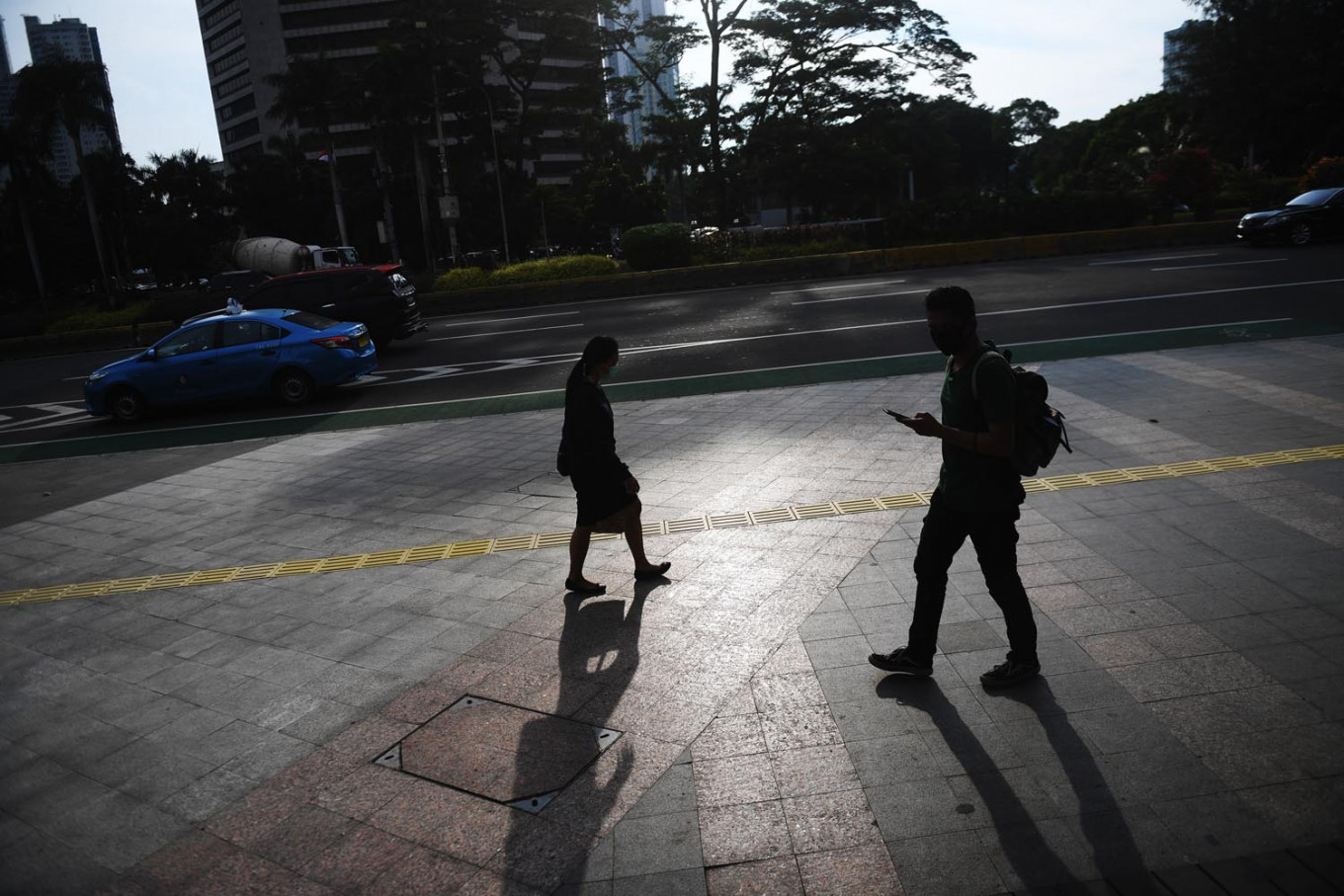Popular Reads
Top Results
Can't find what you're looking for?
View all search resultsPopular Reads
Top Results
Can't find what you're looking for?
View all search results'Outbreak won't end in 14 days,' says Anies as he gears up to extend PSBB in Jakarta
Jakartans may need to get ready to hunker down for a longer period as their governor advises legislators of the capital's need to extend the PSBB.
Change text size
Gift Premium Articles
to Anyone
J
akarta is likely to extend the large-scale social restrictions (PSBB), as 14 days is not long enough to bring COVID-19 transmission in the Indonesian capital under control, its governor has said.
“The PSBB was to be in effect for 14 days, but in reality, this kind of outbreak is not going to be over in 14 days,” Jakarta Governor Anies Baswedan said by video link on Thursday, during a meeting with the COVID-19 mitigation supervisory team of the House of Representatives.
Jakarta, the epicenter of the Indonesian outbreak, is the first region to impose the PSBB, which is in effect from April 10 to 23. The city's implementing regulation on the PSBB conforms to the guidelines issued in a Health Ministry regulation, which requires regions to apply for the PSBB before they may install localized measures aimed to contain the spread of the viral respiratory disease.
“It is better to assume that this outbreak is going to last longer, so we can be better prepared,” said Anies. The governor also urged the House supervisory team to consult with epidemiologists on the projected duration of the outbreak.
Anies said that many countries in the world were still fighting their own outbreaks, pointing to Wuhan – the city in Hubei, China, where the virus was first detected in December 2019 – where mitigation measures were still in place, even after months of a city-wide lockdown.
Read also: COVID-19: Vacant roads, little activity mark first day of PSBB implementation in Jakarta
In compliance with the Health Ministry's PSBB guidelines, Jakarta has also restricted public transportation.
Jakarta's mass transit system had already seen a slump in passenger numbers as a result of the governor's stay-at-home and work/study from home polices, which had been implemented prior to the PSBB.
City-owned BRT operator Transjakarta recorded a 91 percent fall in the number of daily passengers to 91,000 from 1 million, while MRT Jakarta recorded a 95 percent fall in daily passengers to 5,000 from 100,000.
Anies said that he had also urged Kereta Commuter Indonesia (KCI), a subsidiary of national railway company PT Kereta Api Indonesia, to cease operating its Commuter Line train service while the PSBB was in effect.
Commuter Line operates a city-wide rail network that also connects Jakarta with the satellite cities of Bekasi, Depok and Bogor in West Java, and Tangerang in Banten. The rail service has already cut its passenger per car capacity to comply with Jakarta's PSBB policy.
The capital is also planning to expand its testing capacity from the present rate of 4,524 tests per day at 23 laboratories to 8,000 tests per day, using the polymerase chain reaction (PCR) testing method.
Anies said that Jakarta's testing capacity would soon be expanded with the help of Kalbe Farma, a publicly listed pharmaceutical company.
“But the number [of tests] is still very small compared to what we need, that’s why we are focusing on PCR tests rather than rapid tests,” he said.
Rapid tests, while faster and more affordable, have been deemed less accurate than the PCR swab tests.
As of Thursday, Indonesia had recorded 5,516 confirmed cases and 496 deaths, with 548 recovered cases – the first time the number of recovered cases had overtaken the death toll. Meanwhile, Jakarta recorded 2,670 confirmed cases and 244 deaths, with 202 recovered cases.










